9-10-11 926
|
|
|
|
|
|
|
这段文本提供了关于“麦迪逊大道”(Madison Avenue)的解释和它在文化中的象征意义。以下是详细解释: ### 英文原文整理: 1. Madison Avenue = a north-south avenue in the borough of Manhattan in New York City, United States ### 详细解释: 1. **Madison Avenue = a north-south avenue in the borough of Manhattan in New York City, United States** 2. **The term "Madison Avenue" is often used metonymically for advertising, and Madison Avenue became identified with the American advertising industry after the explosive growth in this area in the 1920s.** 3. **Metonymy** ### 总结: 麦迪逊大道不仅是纽约市的一个地理名称,而且已经成为美国广告业的代名词。这种用法源于20世纪20年代广告业在该地区的快速增长。通过转喻,麦迪逊大道这个名字现在通常用来象征广告业,特别是在美国的广告业。这种象征性的用法反映了广告业在该地区的集中度以及它在文化中的显著地位。 |
|
|
|
这段文本提供了关于“嬉皮士加州”(Hippy California)的解释,以及嬉皮士文化的特点和起源。以下是详细解释: ### 英文原文整理: 1. Hippy California = ### 详细解释: 1. **Hippy California** 2. **The hippie subculture was originally a youth movement that arose in the United States during the mid-1960s and spread to other countries around the world.** 3. **They used alternative arts, street theatre, folk music, and psychedelic rock as a part of their lifestyle and as a way of expressing their feelings, their protests and their vision of the world and life.** 4. **Hippies opposed political and social orthodoxy, choosing a gentle and nondoctrinaire ideology that favored peace, love and personal freedom.** ### 总结: 嬉皮士文化是一场起源于1960年代中期的美国青年运动,以其对和平、爱和个人自由的追求而闻名。嬉皮士通过音乐、艺术和戏剧来表达他们的情感和抗议,反对主流的政治和社会规范。这场运动不仅在美国流行,也影响了世界各地的青年文化。 |
|
|
|
这段文本看起来像是一个对比表格,概述了1960年代嬉皮士运动中的一些核心观点和偏好。以下是对这个表格内容的解释: ### 表格内容整理: - **Against (反对)** - **For (支持)** ### 详细解释: - **Established institutions** - **Middle class values** - **Nuclear weapons** - **The Vietnam War** - **Eastern philosophy** - **Sexual liberation** - **Vegetarian and eco-friendly** - **Psychedelic drugs** ### 总结: 这个表格概括了嬉皮士运动的一些主要观点和偏好,反映了他们对社会、文化和政治的不同看法。嬉皮士运动的参与者倾向于反对他们认为限制个人自由和表达的制度和价值观,同时支持和平、爱、个人成长和环境保护的理念。 |
|
|
|
|
|
这段文本讨论了作者对英格兰年轻人的看法,区分了“吵闹型”和“安静型”年轻人,并表达了对后者的信心。以下是详细解释: ### 英文原文整理: 1. So far as the English young are concerned, I am dubious about the noisy types, whether they are shouting in the streets or joining the vast herds at pop festivals. ### 详细解释: 1. **I am dubious about the noisy types, whether they are shouting in the streets or joining the vast herds at pop festivals.**
2. **Too many of them lack the individuality to stand up to Admass, which can provide them with another and even larger herd to join.**
3. **I have far more faith in the quieter young, who never swaggered around in the youth racket,**
4. **Who may have come under the influence of one or two of those professional men and women,** 5. **Who have probably given some thought to what life may be like at forty or forty-five.** 6. **They, too, might help to swing the battle.** ### 总结:
这段文本中,作者表达了对英格兰年轻一代的观察和思考。作者怀疑那些吵闹型的年轻人,认为他们缺乏个性,容易受到大众文化的影响。相反,作者对那些安静的年轻人寄予了更大的希望,认为他们更有个性,更可能对自己的生活有深思熟虑的规划,从而有助于推动社会文化的积极变化。 |
|
|
|
|
|
这段文本讨论了作者对一部分英格兰人的评价,特别是那些在他看来不够严谨、不够认真的人。以下是详细解释: ### 英文原文整理: 1. What follows does not apply to old-age pensioners, to people still overworked and underpaid, to all the English who have some integrity, some individual judgment and real values. ### 详细解释: 1. **What follows does not apply to old-age pensioners, to people still overworked and underpaid, to all the English who have some integrity, some individual judgment and real values.**
- **Integrity**: 正直。 2. **Far too many of the other English--though I don't say a majority-- are sloppy people.**
3. **They are easy to get along with, rarely unkind, but they are not dependable; they are inept, shiftless, slovenly, messy.**
4. **This is not entirely their own fault.** 5. **Unlike their fathers or grandfathers, they have not been disciplined by grim circumstances.**
6. **They are no longer facing starvation if they don't work properly or go on strike, no longer told to clear out if they aren't properly respectful and start answering back, no longer find themselves the victims of too many hard facts.**
have to protest agensit the manygement not be respectful
### 总结: 这段文本中,作者区分了他所尊重的英国人和他认为邋遢的英国人。作者对那些有正直、独立判断和真正价值观的人表示尊重,而对那些他看来不够严谨、不够认真的人表示批评。作者认为,这种现象部分是由于这一代人没有像他们的前辈那样经历过严峻环境的磨练。 |
| sj2 |




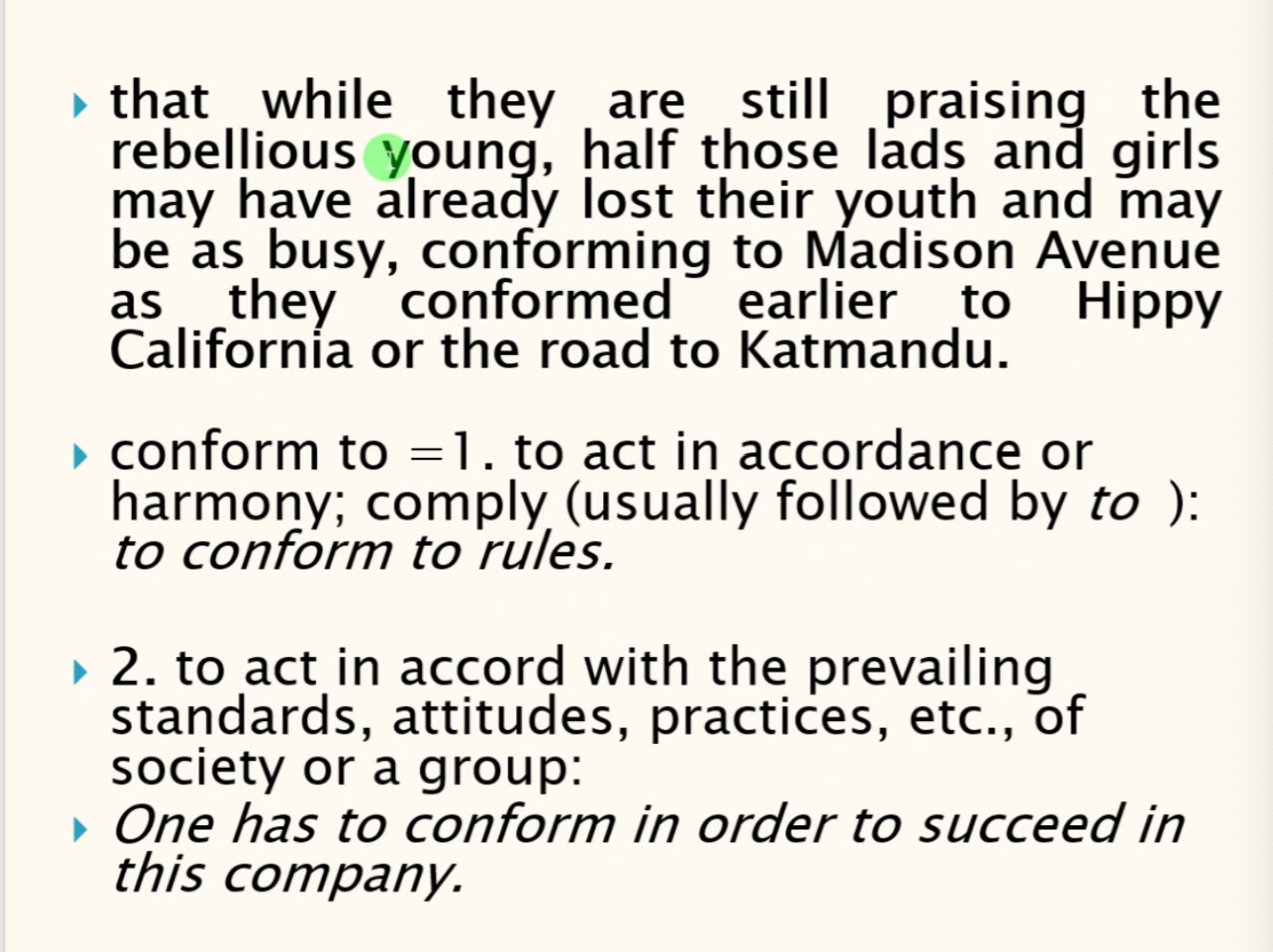
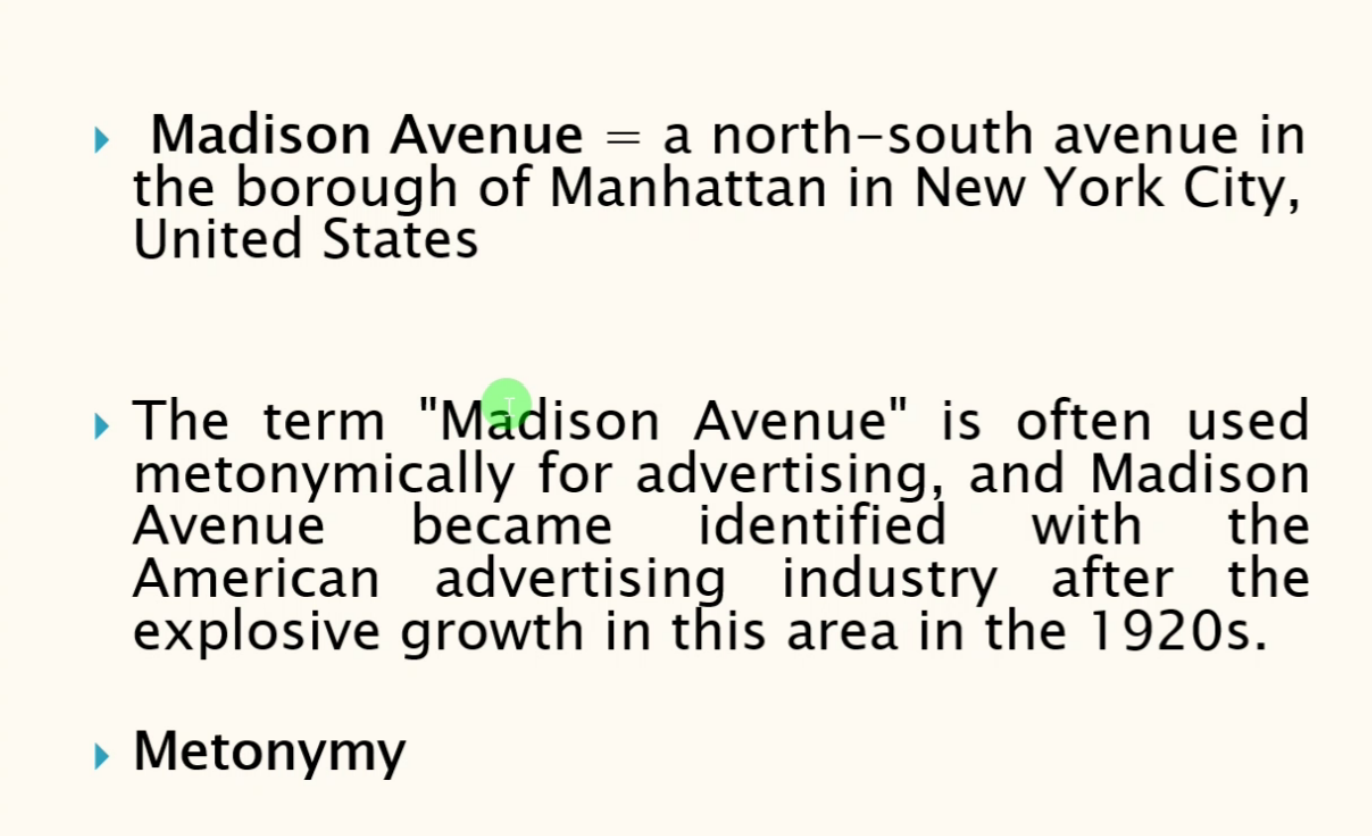
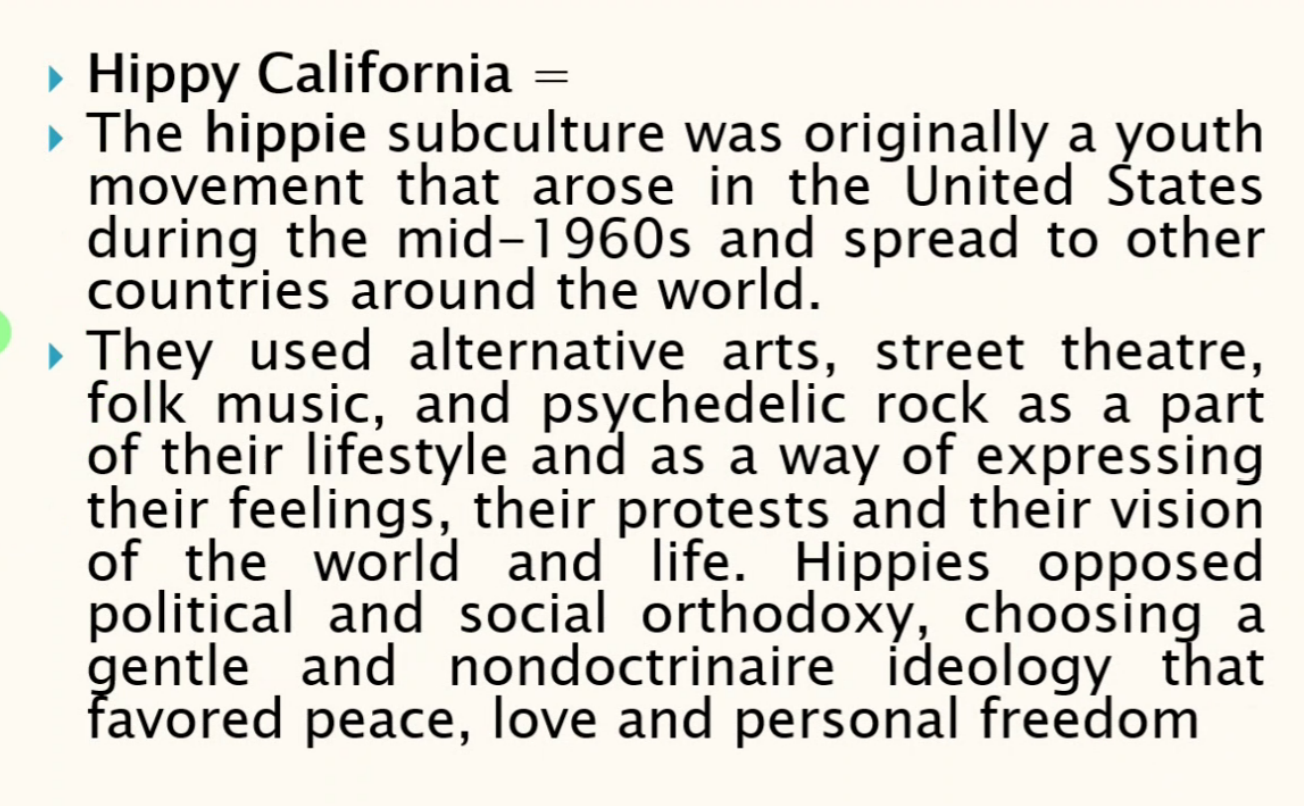
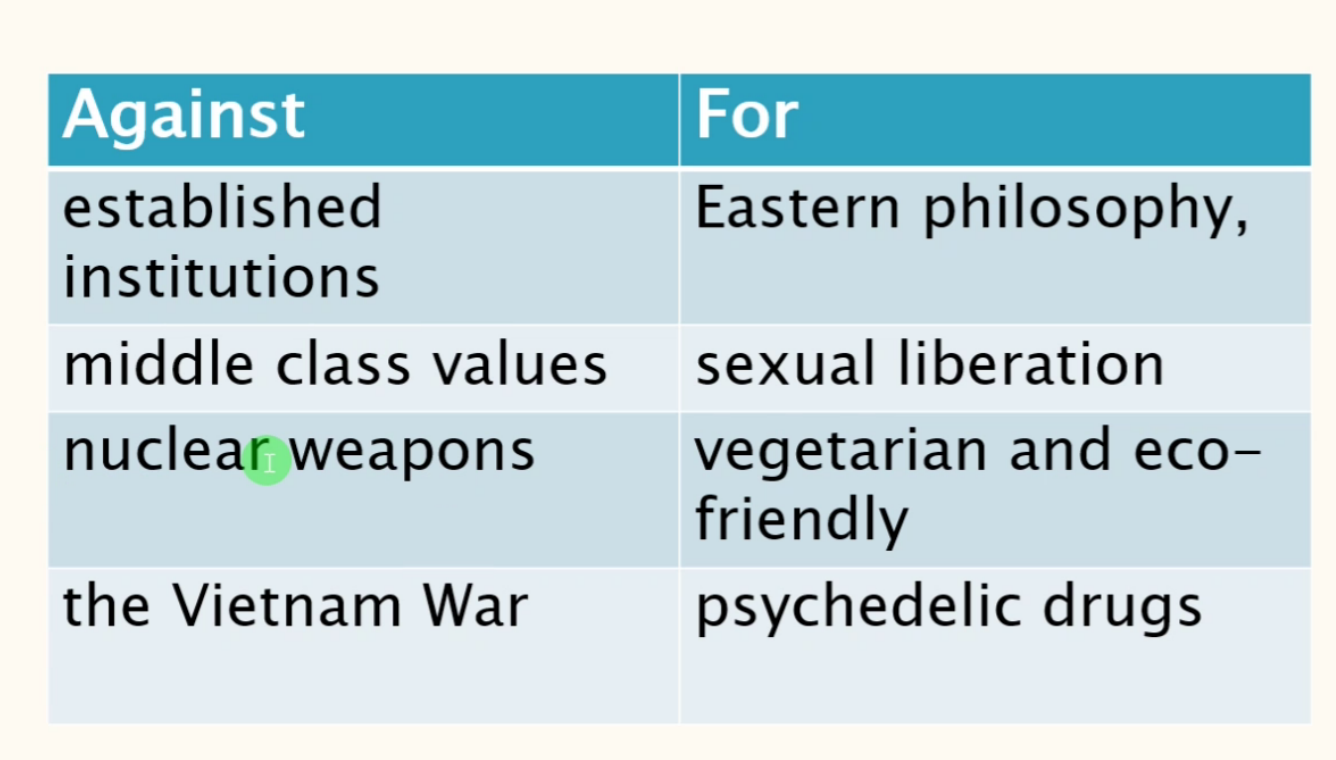
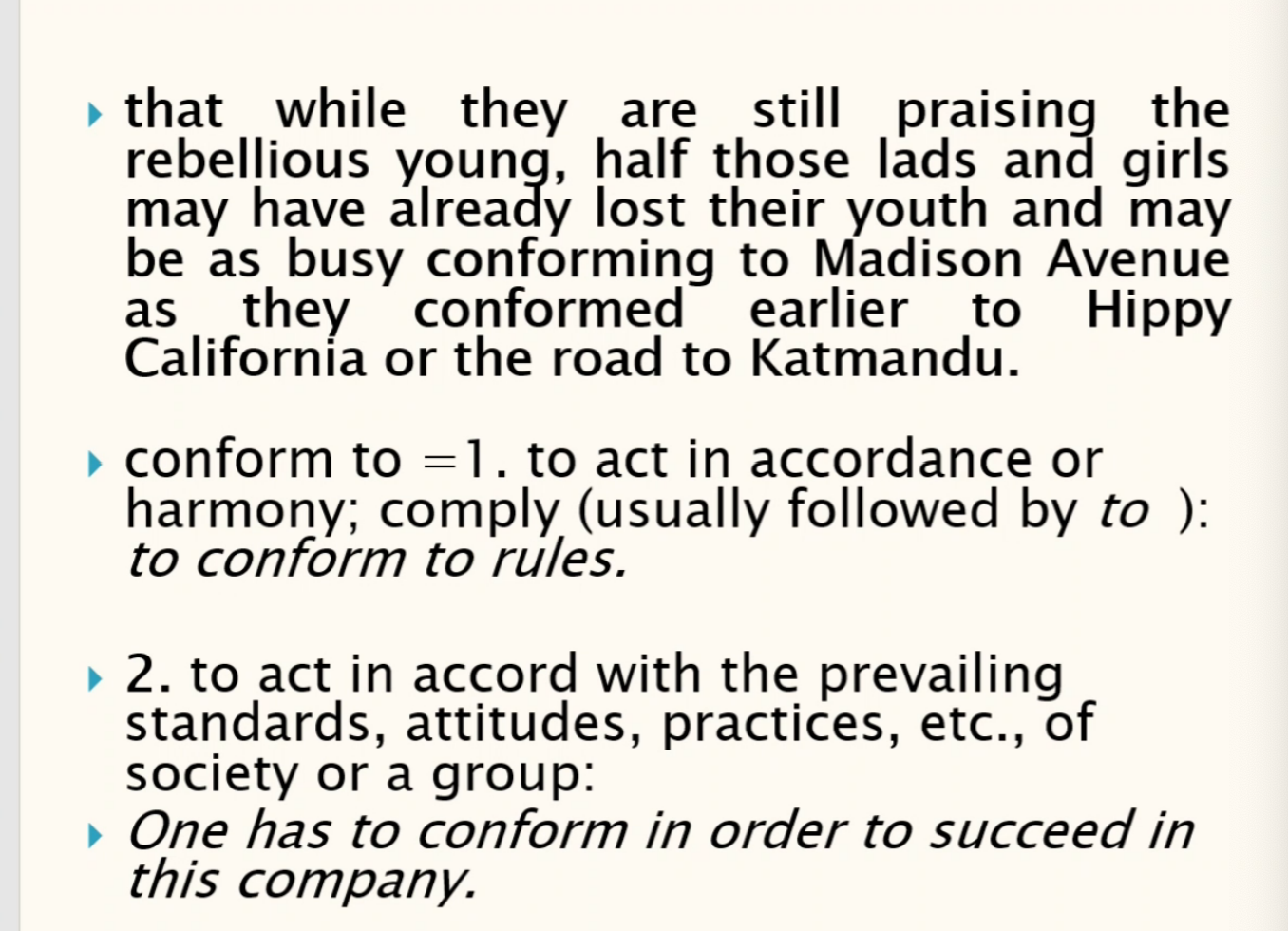
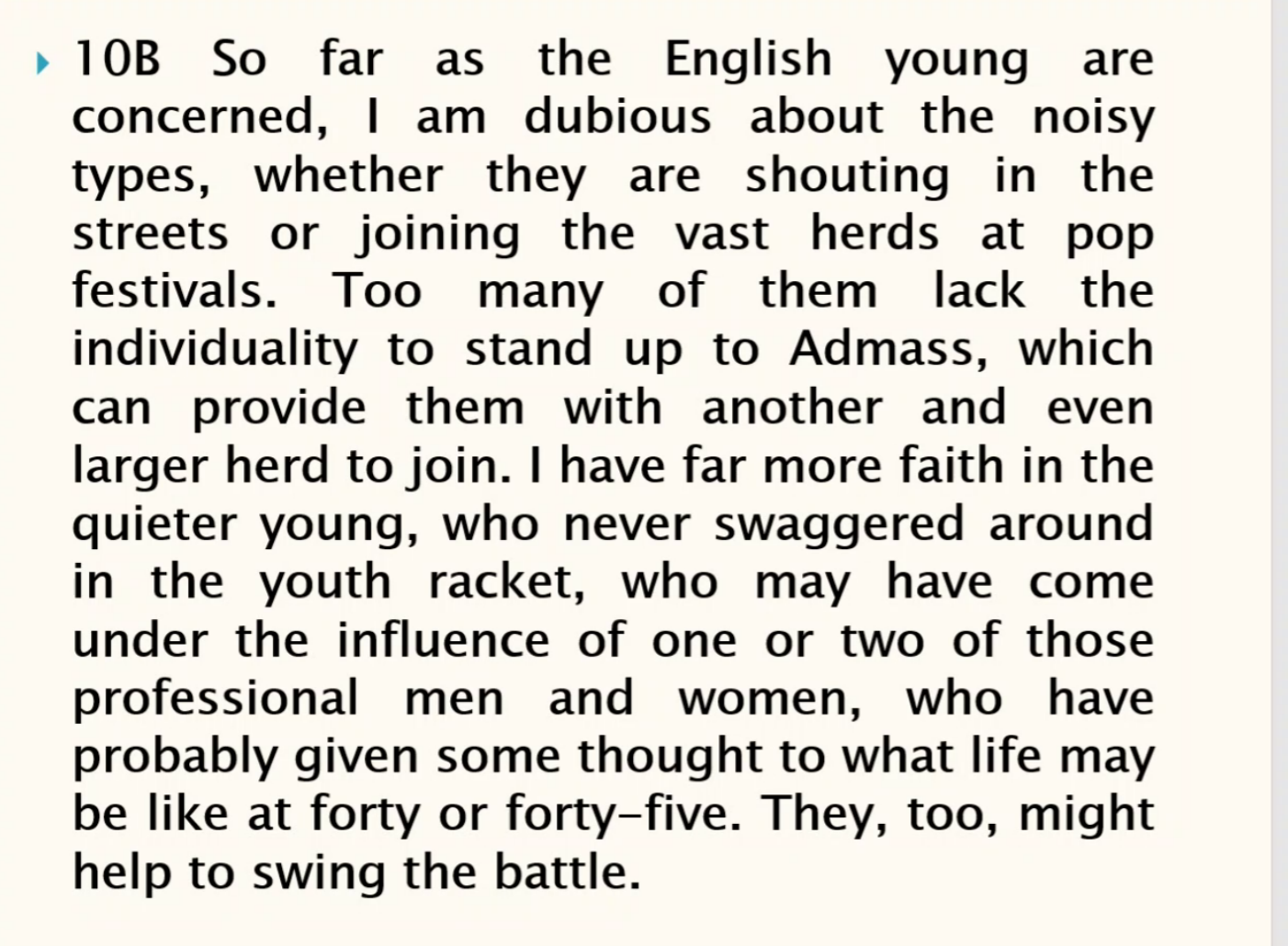

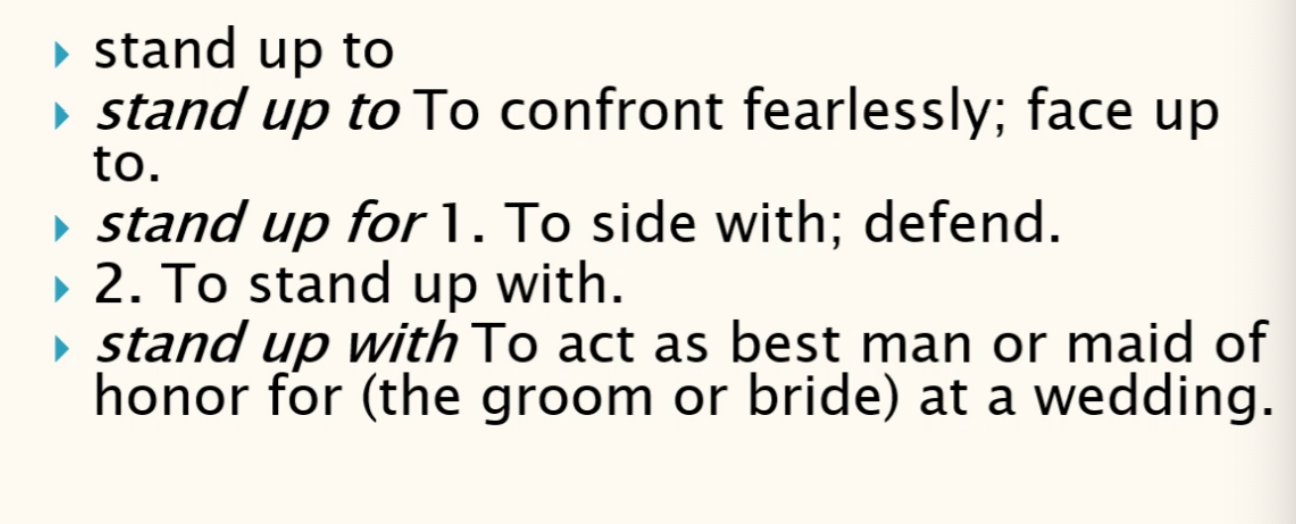
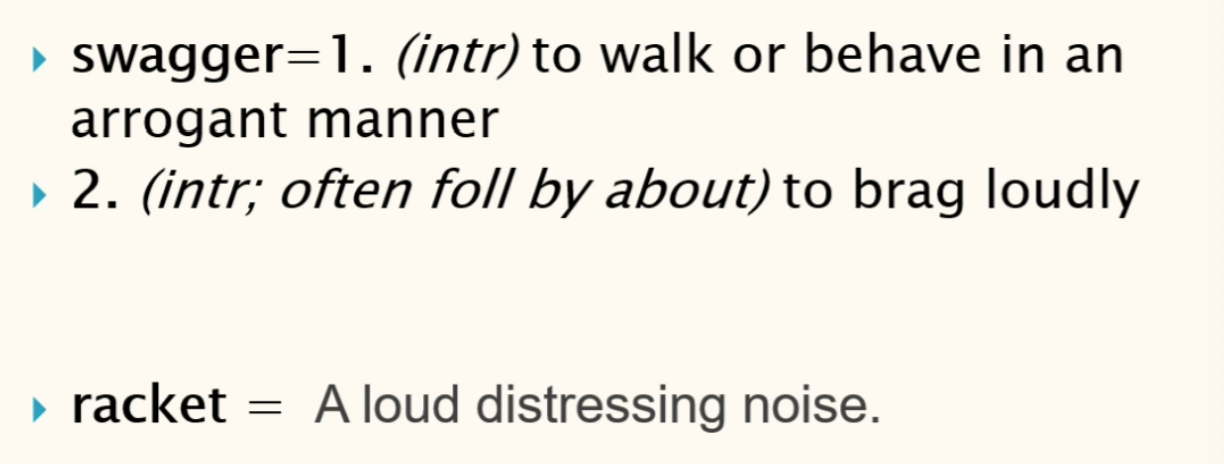
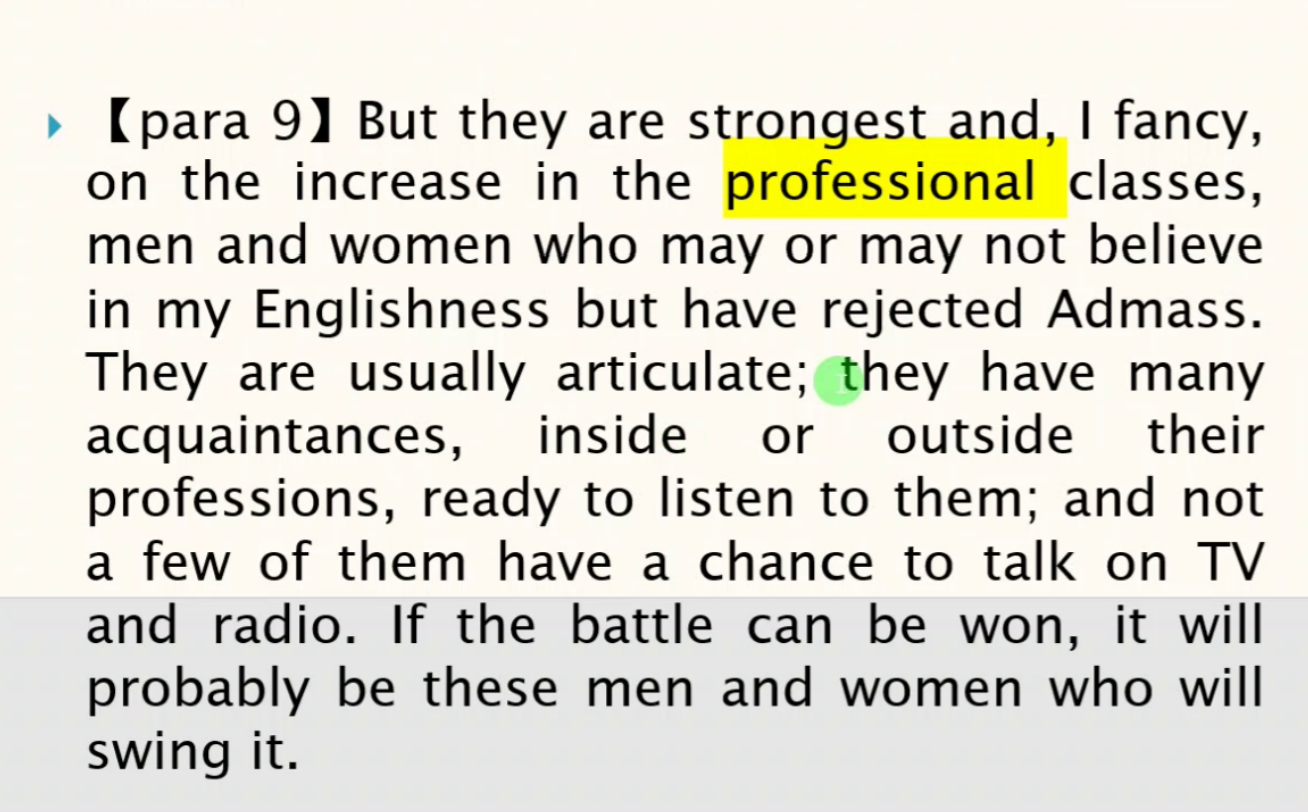

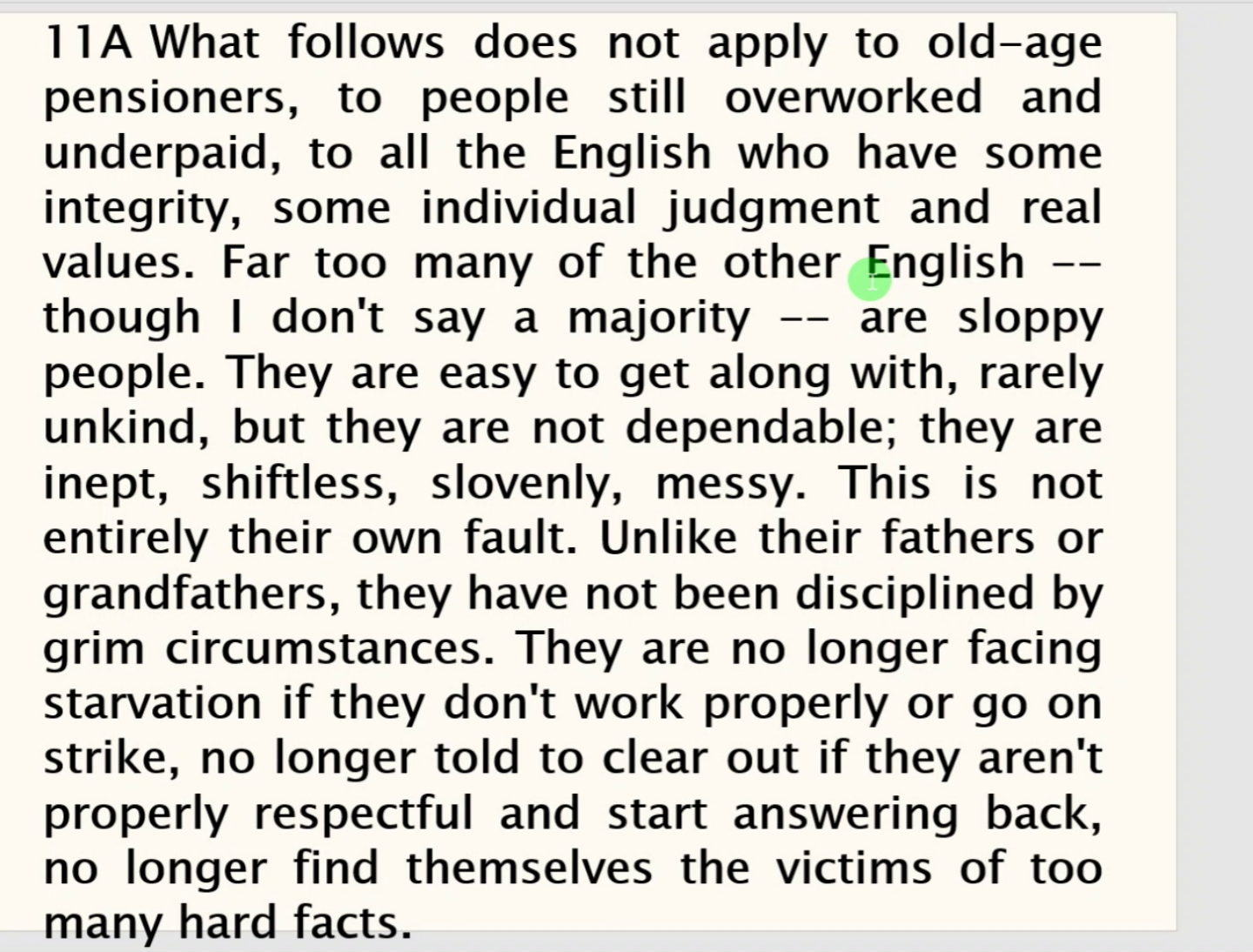

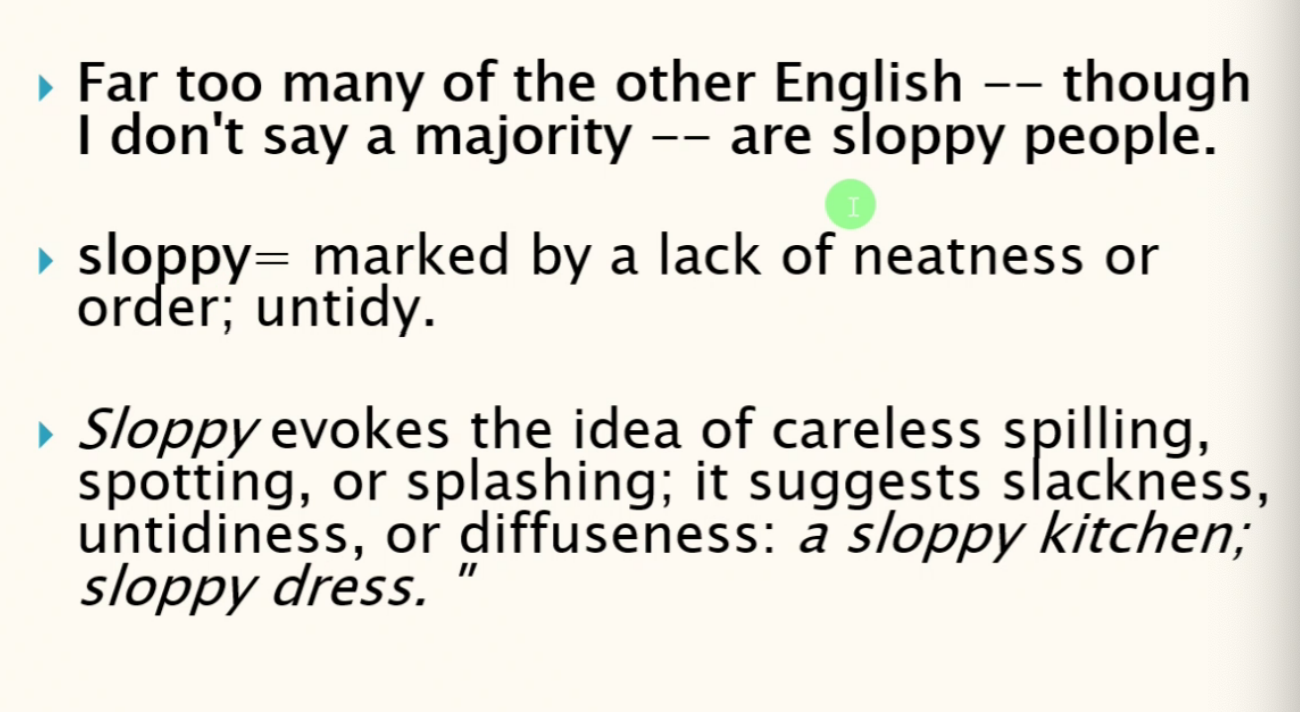
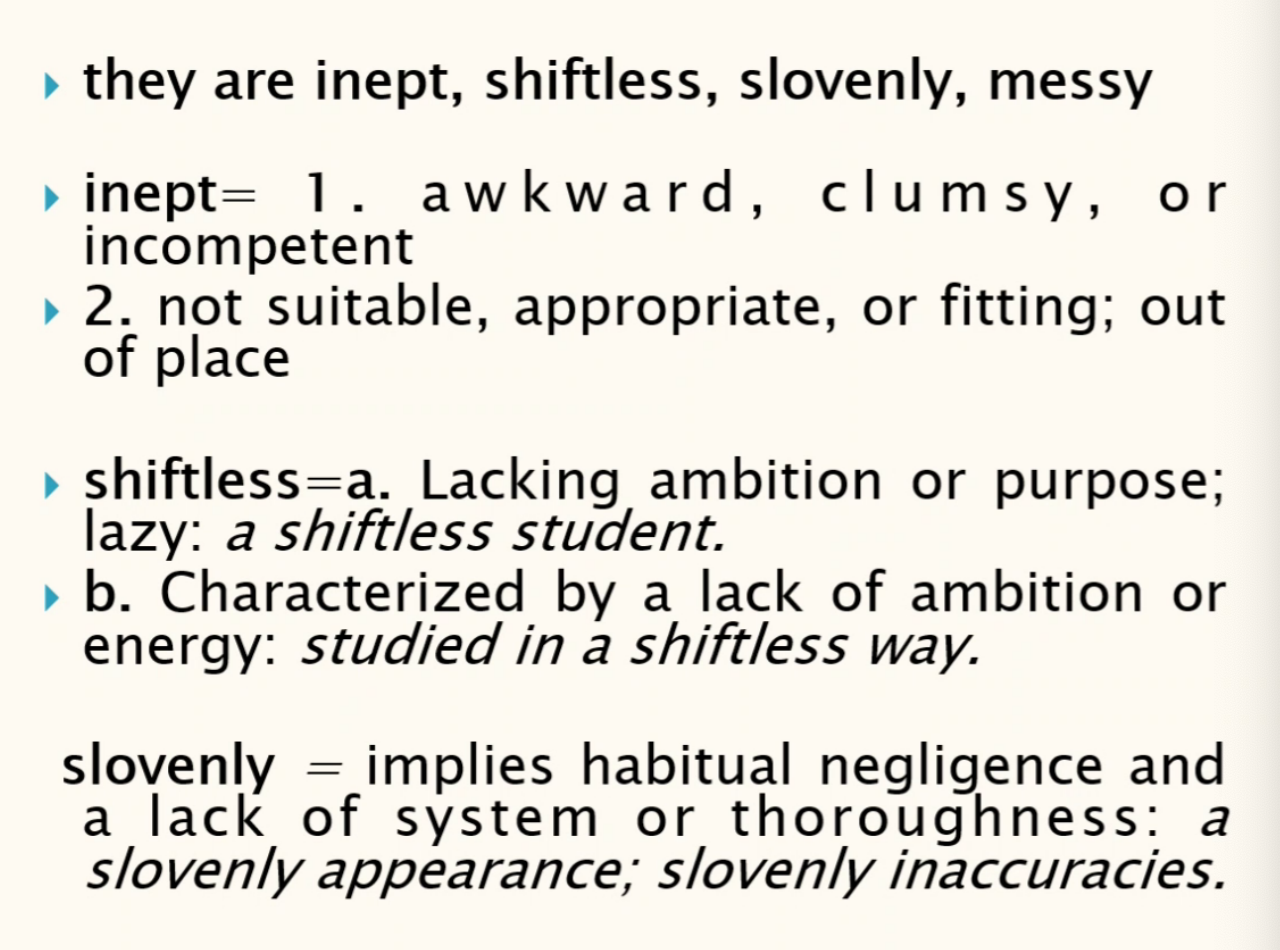
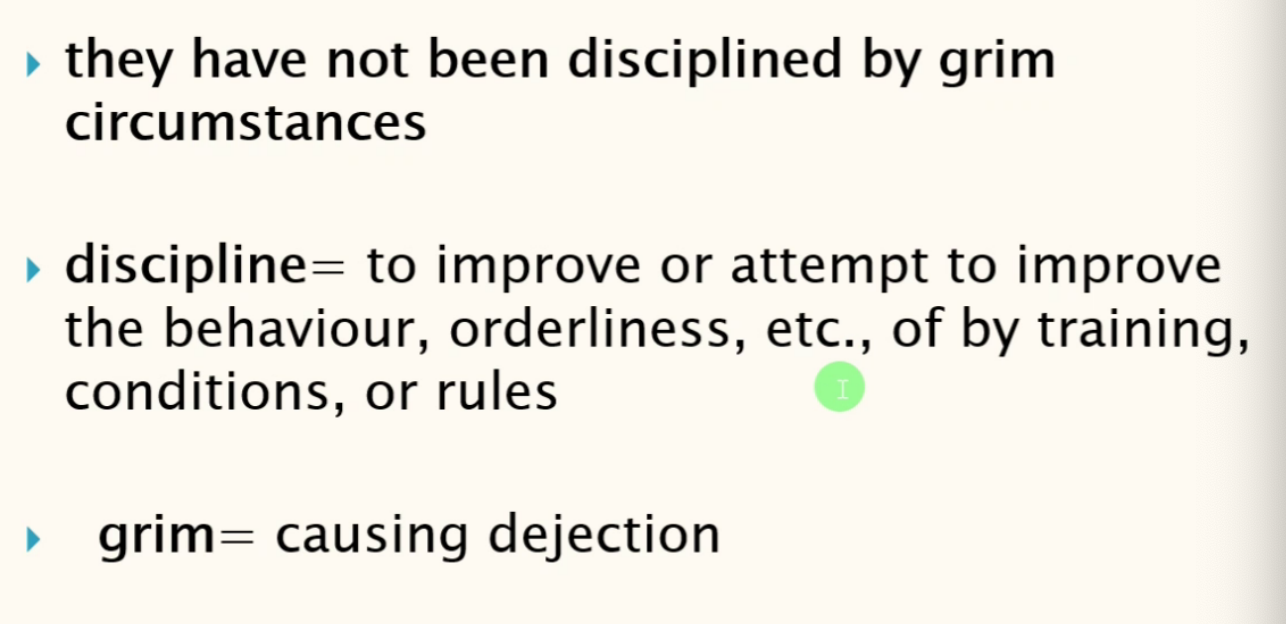
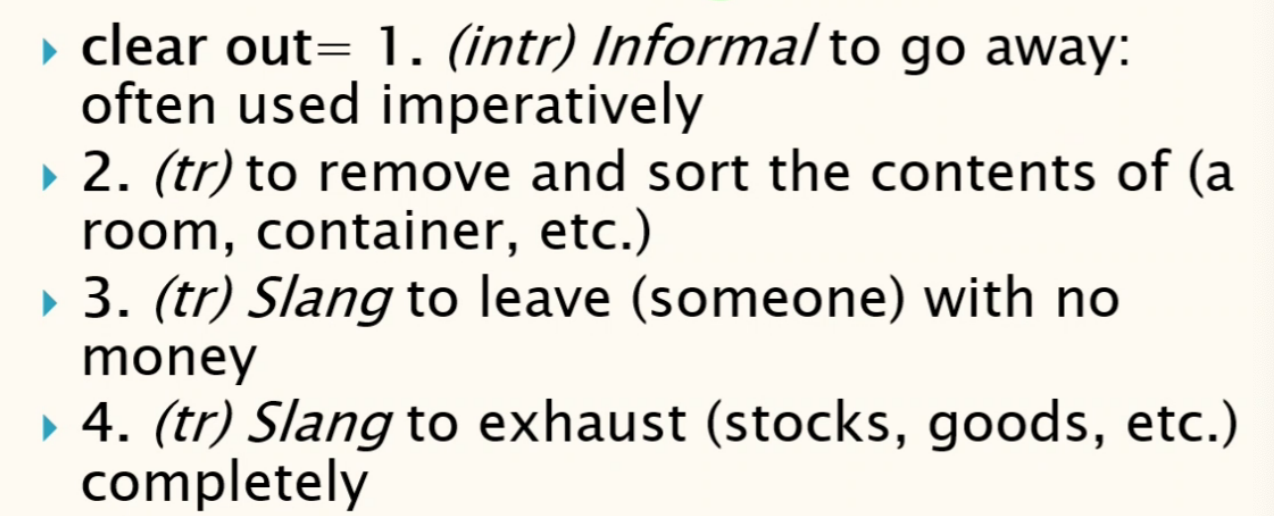

 浙公网安备 33010602011771号
浙公网安备 33010602011771号